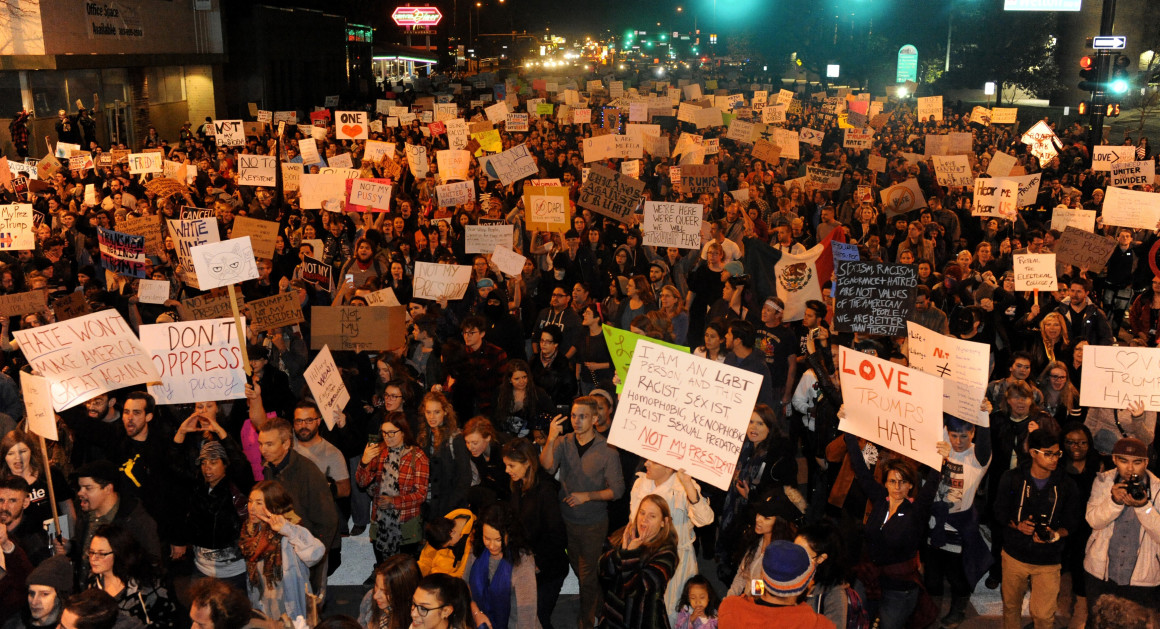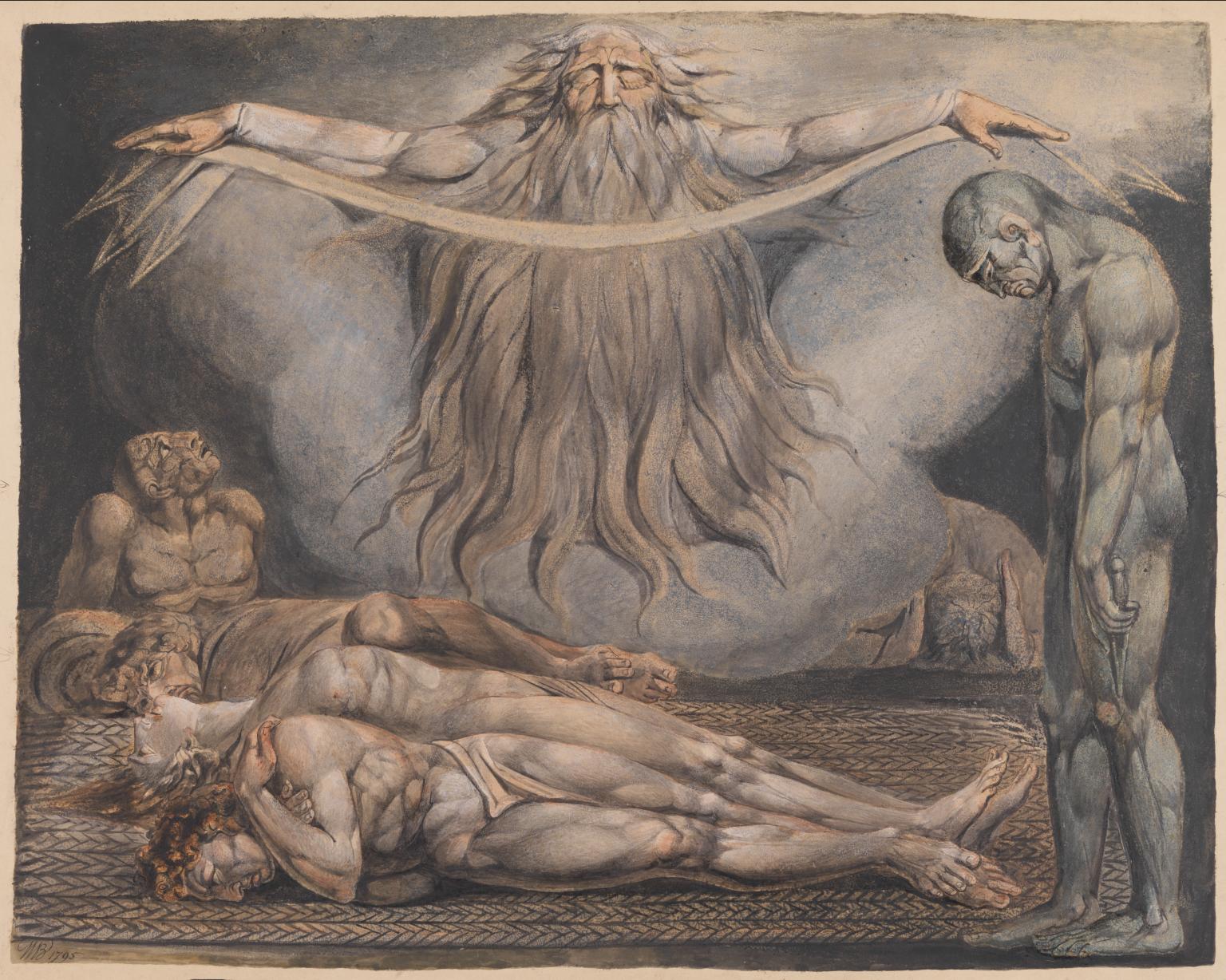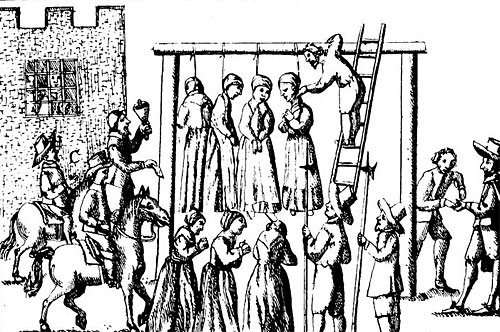
It is frequently noted across the political spectrum that the United States is becoming dangerously polarized. Differences in political opinion are now capable of provoking bitter splits between family members and dissolving friendships and even marriages. For a troublingly large number of people, the political viewpoints that a person holds now serve as the strongest measure of his worth, taking precedence over whether he is moral, conscientious, trustworthy, generous, intelligent, or open-minded. Polls show a general tendency, one that has intensified in recent years, whereby conservative Americans have shifted more to the right, while liberal Americans have moved even further to the left. Given the acrimonious mood of the country, borne out by the bitter feud over the nomination of Brett Kavanaugh to the Supreme Court and the unremitting indignation over the figure of President Trump himself, it would be hard to deny that the public has come to pay more close attention to politics than in past decades, when it was common to hear that the great threat to democracy was apathy and a lack of interest in politics. Yet, what if it is misleading and erroneous to regard the hyper-politicization of American society as ultimately a political phenomenon? What if the stakes are deeper and more encompassing than what we currently understand and designate as political?
"In replacing politics with morality, liberalism yields to its unconscious nostalgia for what it has been so successful in prohibiting. It gropes toward the path of hierarchy, violence, and cruelty that promise the rejuvenation of an exhausted and dying culture."
In light of the heated controversies today over gender, race, and sexuality, it is instructive to think back to the issues that progressives considered as being of vital importance during the years George W. Bush was in office. In the years following the attacks of 9-11, progressives criticized the Bush administration for its invasion and occupation of Iraq, its economic policies that enriched the wealthy while leaving the middle and working classes behind, and its refusal to reduce US dependence on fossil fuels. Liberals, many of whom initially supported the war in Iraq, turned against it once it became clear that the US attempt to promote democracy in the region had instead destroyed whatever political order remained in the country and set off a brutal civil conflict between the majority Shi’ites and minority Sunni. Liberals also decried the president’s fiscal irresponsibility, as the combination of tax cuts and the cost of military occupations led to massive budget deficits.
But a look at the political landscape today reveals stark differences in priorities. Americans now are made to feel guilty over the sufferings of blacks under slavery and Jim Crow, but outpourings of penitence for the ongoing afflictions of the people of Iraq are not in evidence, though there is no shortage of fury directed against those who warn that terrorists and criminals could be hiding among the migrants from the Middle East. Indeed, the categorical insistence on open borders that has become mainstream in the Democratic Party prevents achieving a compromise with the Republicans that would make it easier for the Iraqis and Kurds who have worked for the US military to enter the country. The media has also placed sexual identity at the forefront of public consciousness, fulsomely praising the “courage” of those individuals who have undergone surgical procedures to appear as the opposite sex. And while protesters against the Iraq War were willing to acknowledge that radical Islam posed a genuine global threat—thus making the case that invading Iraq would lead many more young men to take up arms against the West—today those who use the terms “radical Islam” or “Islamist terror” are condemned by liberals as Islamophobic. It is possible to argue that in many quarters of the West, the use of words deemed offensive and prejudicial arouse greater indignation and anger than terrorist acts that take many lives.
Why have liberals and progressives undergone such a dramatic shift in their political priorities? Or are these changes more apparent than real, an impression given off by a corporate media that wishes to avoid blame for having supported or remained silent about the calamitous errors, widespread corruption, and startling ineptitude of the political class? While it is true that a polarized public has resulted in greater profits for the media conglomerates, it is also the case that liberals and progressives have become largely uncritical of the left-leaning corporate media. With few exceptions, they do not recognize the danger that their emotions are being manipulated by a corrupt and self-serving media establishment—for liberals, gender-neutral bathrooms, cultural appropriation, and a patriarchy that discourages women from achieving success in their careers are all issues to be taken seriously. They genuinely believe that Islamophobia is a greater problem than Islamist terrorism, that white privilege is the reason for the poverty and despair of underclass African Americans, and that toxic masculinity is the source of all social and historical evils. What is more, liberals also insist that anyone who does not agree with them on these questions is a reactionary and a bigot who longs for the days when he could insult with impunity those below him in the social hierarchy. Anyone who breaks with today’s liberal ideology stands in the way of progress, and so deserves to be driven from polite society and even deprived of his capacity to earn a livelihood.
Liberals have long insisted that they know better than others about how to govern society and run its institutions, but what is different about today’s liberalism is its vindictive character, its quickness to punish anyone who does not express complete and enthusiastic agreement with its stances, which include the views that children in primary school should be taught that they can choose their gender and that white Christians are the most violent group in America. But again, what is striking is not only the outlandish character of these beliefs, especially when compared to the seriousness of the issues raised by progressives a decade ago, but also the eagerness to condemn as hateful anyone who disagrees with them. Indeed, the decisive question of our age might be how and why liberalism, which has sought to expand and protect the freedom of the individual, could turn into a persecutory ideology.
Although it is beyond my ability at present to provide a comprehensive explanation for this shift, the embrace of corporate media by progressives and liberals, in my view, comprises a major piece of the puzzle. During the Cold War, leftists were known for their reflexive hostility to mass media, which they decried as a reactionary mechanism for manipulating and indoctrinating the public. Frankfurt School thinkers Theodor Adorno and Max Horkheimer singled out the balefulness of modern media in turning citizens into compliant consumers who gladly gave up their freedom and responsibility for the easy and passive existence made possible by a quasi-totalitarian administered society. But thanks largely to identity politics, today’s liberal left has overcome any such reservations about the social beneficence of corporate media. Mainstream media outlets now regularly endorse and promote once-radical positions in the realms of race, gender, and sexuality. The emergence of a culture of “wokeness,” based on a crude moral scheme where oppressed groups are automatically right and members of so-called privileged majority are automatically wrong, have in essence relieved the public from having to pay any attention to the ongoing strife in the Middle East, the swelling of the deficit, and other issues where the best course of action is unclear and which therefore do not provide the titillating jolt of righteousness and sanctimony of feeling oneself to be morally superior to one’s opponents.
The promotion of racial and sexual minorities by the mainstream media has thus made possible a form of instant gratification in the realm of politics, in which one feels exempted from having to contemplate important but morally ambiguous questions in favor of lashing out at those one targeted by the media as hateful bigots. In other words, the corporate media enables the public to avoid difficult issues in a manner that allows them to feel their moral rectitude. The emergence of an intolerant, persecutory liberalism is thus unthinkable apart from how it has become entwined with mass media that provides a platform through which to condemn and denigrate large groups of people. It is not entirely clear how such an alliance came to take shape, since the corporate media was as uncritical toward George W. Bush as it was toward his successor, Barack Obama. Indeed, it was only in the second-terms of both presidents that stories questioning their decision-making began to appear in prominent outlets. One factor may have been the belief among Democrats that Obama’s presidency failed because of the unregenerate racism of white America—even though he twice won resounding victories over his Republican rivals—rather than attributing the failures of his presidency to the modesty of his gifts as a statesman. By playing up identity politics and publicizing the misdeeds of whites—while minimizing stories of the rise in violent crime in cities such as Baltimore and Chicago—the media gave disappointed liberals an image of the reality they wished to see: a country overrun by racists and bigots who are so terrified of a diverse future that they turned in their desperation to a fascist to take the helm.
Meanwhile, the insistence of liberals on seeing the world in the way they want to see it is setting in motion the destruction of liberalism itself. For their obstinate insistence that social reality is how they wish it to be is accompanied by a perverse determination to remain steadfastly ignorant about the motives and outlooks of their opponents. In “The Rise of Post-Truth Liberalism,” an insightful account of the current political landscape, John Gray notes that liberals in the US have plunged into a state of “mass psychosis” since the 2016 election. They have responded to Hillary Clinton’s stunning and unexpected defeat not by trying to draw lessons to help them win over more voters in future elections but by doubling down on the belief that they represent the forces of progress and enlightenment while Trump supporters are on the wrong side of history. According to Gray, liberals have chosen not to understand how dramatically and rapidly the world is changing because to do so would mean giving up their faith in their role as the “intellectual vanguard of humankind.” Rather than rethink their beliefs, liberals have opted to find consolation in the dubious pleasures of victimhood.
But as persuasive as Gray’s analysis is regarding the retreat of liberals into their dogmas, he does not venture into making sense of the intense pleasure they take in denouncing and humiliating those who speak in ways deemed offensive and bigoted. Indeed, their delight and fulfillment at castigating and vilifying the less enlightened are so potent so as to compensate for failing to persuade others to support their side. One writer who has tested the murky waters of this intolerant and self-congratulatory liberalism is John Michael Greer. In a blog post titled “Hate is the New Sex,” written almost a year after the election, he argues that liberals treat hatred in the same way that the Victorians dealt with sexual desire—both condemn an unavoidable aspect of life as the source of all evil, and so turn the forbidden emotion into an object of obsessive interest and prurient fascination.
Married couples in the Victorian era often slept in separate rooms and wives were advised to kiss their husbands on the cheeks rather than on the lips. Yet their disapproval and revulsion toward sexual desire could take the form of going out of their way to seek out occasions on which to experience and express their “shock and offense” at instances of improper behavior. Similarly, today’s liberals hold that hatred is the cause of all social evils, and so they embarked on a crusade to eliminate it from public life. To express anger over terrorism, crime, and other forms of violence is to put one in jeopardy of stirring up hateful emotions, so we must accept these acts as justified reactions to the crimes committed by the West out of hatred of the other. But as alarming as hatred can be to a pacified middle class that is the product of the most prosperous society that has ever existed, nevertheless hatred and the emotions related to it, such as disgust and contempt, also require exhausting maneuvers in the psyche if one seeks to deny the reality of experiencing it.
Greer notes that that whenever society seeks to forbid ordinary, everyday emotions that one cannot avoid feeling, “a culture of pretense, hypocrisy, and evasion” invariably arises so that respectable people may “vent the unacceptable emotion on some set of acceptable targets without admitting that they were doing so.” Prostitution, including child prostitution, was rampant in Victorian England. For liberals today, hatred is permitted only toward those who harbor hateful attitudes. Indeed, it is in liberal circles that one comes across “really over-the-top hate speech,” aimed, naturally, at the working-class whites who voted for Trump. “Swap out the ethnic labels for any other,” Greer observes, “and you’ll have a hard time telling it apart from the rantings of any other group of bigots.”
It is easy to accuse liberals of hypocrisy, in giving free rein to the very emotion that they condemn as unforgivably depraved. But one can also note a different maneuver here at work, one of reserving for oneself and one’s group a feeling and disposition that one seeks actively to deny to others. Liberals thus are not only being hypocritical in indulging a forbidden pleasure when they pick apart the least word and gesture for evidence of its hatefulness. They are also attempting jealously to reserve for themselves this outlet for bile and loathing. In a sense, the liberal hatred of hatred represents a decisive step away from the egalitarian and liberal values that have long shaped American democracy. By forbidding unwoke whites to feel hatred, they are turning hatred into a mark of social distinction, a sign that one belongs to the upper reaches of the social hierarchy.
It is not entirely unsurprising for liberals to act in such fashion, given the pride they take in having long occupied the positions of moral and cultural leadership in the US. But for liberals to claim for themselves the exclusive right to be intolerant can only mean the termination of liberalism itself. In a way, it is fitting that the demolition of liberalism would come about through the choices and preferences of the liberals themselves, by means of what Gray calls a “hyperbolic liberal ideology,” rather than by a resurgence of one or other variety of “conservatism.” It is liberals who have sought to lay claim to the values that will dominate the post-liberal world—that is, values like cruelty and intolerance—which the philosophers of liberalism have held to be antithetical to liberalism itself. Liberals are the ones who have opened the door to these anti-liberal values and thus to the myriad other evils that are sure to follow in their wake: tribalism, superstition, and the naked exercise of force. For in replacing politics with morality, liberalism yields to its unconscious nostalgia for what it has been so successful in prohibiting. It gropes toward the path of hierarchy, violence, and cruelty that promise the rejuvenation of an exhausted and dying culture.

